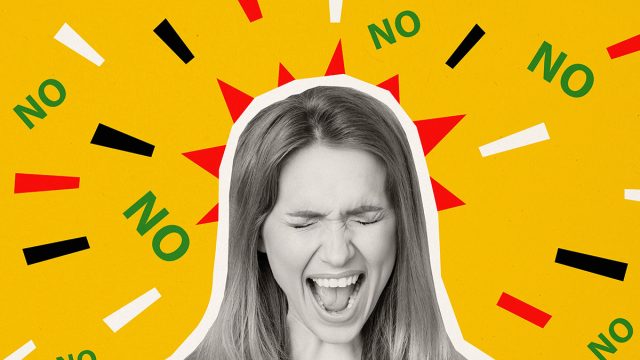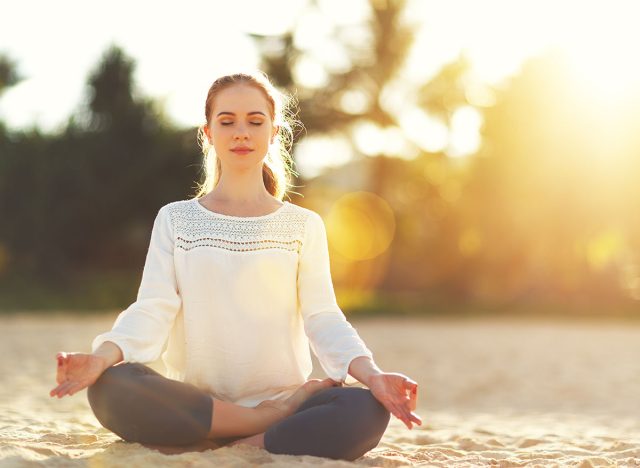10 Natural Ways to Lower Stress Levels Now

You might think that stress is no big deal, but according to the Centers for Disease Control and Prevention, it can seriously impact not only your mental health but physical as well. "Stress can cause feelings of unease, anxiety, frustration, nervousness, fearfulness, or helplessness. When stressed, you may notice changes in your sleep, appetite, or energy level. Feeling stressed is normal, especially when you are experiencing life changes," the CDC explains. Luckily, there are a lot of ways to manage and treat stress that don't involve medication. Adam Potash is a Mandarin Oriental Executive Chef turned personal chef with a certification in Health and Nutrition from the Institute of Integrative Nutrition in New York. He recently spoke with Body Network, offering ten natural ways to lower stress levels now.
Take Time for Yourself

Potash recommends taking time for yourself. "Carving out time for yourself allows you to recharge and focus on your well-being," he says. "It's crucial for avoiding burnout and gaining mental clarity, which ultimately improves your ability to handle stress and make better decisions."
RELATED: I Lost 22 Pounds in 3 Months With These 7 Game-Changing Tips That Transformed My Body
Establish a Morning Routine

Avoid stress in the morning by establishing a routine. "Starting your day with a set routine creates structure and control. By planning your day, you reduce anxiety over the unknown and ensure a smoother, more organized day. This also leaves you with more mental energy to focus on tasks, reducing stress," he says.
Wake Up Before Everyone

The early bird gets the worm, according to Potash. "Waking up earlier than others offers quiet time to set your intentions and priorities without distractions. This personal space helps you mentally prepare for the day, easing stress before responsibilities take over," he explains.
Indulge in Self-Care

"Investing in self-care, like massages or manicures, promotes relaxation and releases tension built up in the body," Potash claims. "These practices improve physical and mental well-being, acting as a reset button for stress."
RELATED: 6 Signs Your Body Needs More Nutrients
Morning Minutes or Journaling

Potash recommends taking a few minutes to journal, as it "helps you process thoughts, emotions, and worries," he says. "This mindful practice enables you to clear mental clutter, reducing feelings of overwhelm and fostering self-awareness."
Take 30-Minute Walks

30-minute walks can seriously help you destress. "Regular walking is a proven way to reduce stress by boosting endorphins, the body's natural mood enhancers. Physical activity not only improves your mood but also provides a mental break from daily challenges," explains Potash.
Engage in Meditation

Get your zen on, suggests Potash. "Meditation promotes relaxation by encouraging deep breathing and mindfulness. It helps quiet your mind, lower cortisol levels, and bring attention to the present moment, reducing overall stress," he says.
Listen to Music

Music is a powerful tool for stress relief, according to Potash. "Uplifting or calming tunes can elevate your mood, reduce anxiety, and create a more positive atmosphere, helping you manage stress throughout the day," he says.
RELATED: 12 Expert Tips to Shed 10 Pounds Before the Holidays
Take the Dogs to the Park

Spending time outdoors, especially with pets, has immediate stress-relieving benefits. "Nature provides a calming environment while interacting with pets boosts serotonin and reduces feelings of loneliness or stress," says Potash.
Learn to Say No

"Setting boundaries and learning to say no prevents you from overcommitting and spreading yourself too thin. By prioritizing your needs and time, you protect your mental health and reduce unnecessary stress," says Potash. And if you enjoyed this article, don't miss 40 Health Symptoms That Can Be More Serious Than You Think.




